I've got this beautiful & convenient helper inline function that i have in a project (originally has it's roots in here & here):
static inline BOOL isEmpty(id thing) {
return !thing
|| [thing isKindOfClass:[NSNull class]]
|| ([thing respondsToSelector:@selector(length)] && [((id)thing) length] == 0)
|| ([thing respondsToSelector:@selector(count)] && [((id)thing) count] == 0);
}
static inline BOOL isNotEmpty(id thing) {
return !isEmpty(thing);
}
and all works well.
it's useful for checking NSString, NSData, NSArray, NSDictionary, NSSet, and others... My issue now is that I brought it in to another project(a static framework/library that i'll be using) and have the following issue that is stopping my project from building:

I'm using the same(latest) version of xCode with both so not sure what the difference could be that would stop this on one side and not the other... The project settings are obviously different in either project (as mentioned, one is a framework and one is a regular project) but would that do it?
thanks in advance!
POST-SOLUTION-EDIT for future visits:
hold command and click on the method or property to get a drop down of all the instances that the compiler is seeing... you likely have conflicting return types.